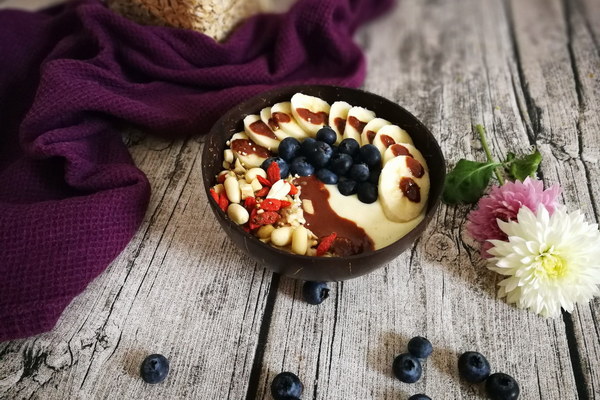Maximizing Vitality in Middle Age A Comprehensive Guide to Health and Wellness for Seniors
As we transition into the golden years, maintaining health and wellness becomes paramount. Middle-aged individuals often find themselves at a crossroads, balancing the demands of daily life with the desire to preserve their vitality and well-being. This article provides a comprehensive guide to health and wellness for seniors, offering practical advice on how to thrive in middle age.
1. Regular Exercise
Physical activity is crucial for maintaining strength, flexibility, and overall health. Seniors should aim for at least 150 minutes of moderate aerobic exercise or 75 minutes of vigorous aerobic exercise per week, along with muscle-strengthening activities on two or more days a week. Examples of suitable exercises include walking, swimming, cycling, and yoga. Engaging in regular exercise can help prevent chronic diseases, such as heart disease, diabetes, and obesity.

2. Balanced Diet
A balanced diet is essential for providing the necessary nutrients to support health and longevity. Seniors should focus on incorporating a variety of fruits, vegetables, whole grains, lean proteins, and healthy fats into their meals. It's important to limit the intake of processed foods, sugary drinks, and excessive salt. Additionally, staying hydrated is vital, so seniors should aim to drink at least eight glasses of water daily.
3. Adequate Sleep
Quality sleep is essential for overall health and well-being. Seniors should aim for 7-9 hours of sleep per night. Establishing a consistent sleep schedule, creating a comfortable sleep environment, and avoiding stimulants such as caffeine and nicotine before bedtime can help improve sleep quality.
4. Mental Stimulation
Stimulating the mind can help maintain cognitive function and prevent mental decline. Seniors should engage in activities that challenge their brain, such as reading, puzzles, learning new skills, and socializing. Participating in clubs or groups that share similar interests can provide a sense of belonging and mental stimulation.
5. Stress Management
Chronic stress can have detrimental effects on health, so it's important for seniors to develop effective stress management techniques. Techniques such as meditation, deep breathing exercises, and mindfulness can help reduce stress levels. Additionally, maintaining a positive outlook and seeking support from friends, family, and professionals can aid in managing stress.
6. Regular Health Check-ups
Seniors should schedule regular health check-ups to monitor their health and detect any potential issues early. This includes blood pressure, cholesterol, blood sugar, and cancer screenings. Staying proactive about one's health can help prevent and manage chronic conditions.
7. Social Engagement
Maintaining social connections is vital for mental and emotional well-being. Seniors should strive to stay connected with friends, family, and community. Engaging in social activities, volunteering, and joining clubs can provide a sense of purpose and belonging.
8. Preventive Care
Seniors should take steps to prevent common health issues, such as falls, fractures, and dental problems. This includes maintaining a safe living environment, practicing good hygiene, and wearing appropriate footwear. Regular dental check-ups and vaccinations can also help prevent health complications.
In conclusion, maximizing vitality in middle age requires a holistic approach that includes regular exercise, a balanced diet, adequate sleep, mental stimulation, stress management, regular health check-ups, social engagement, and preventive care. By implementing these strategies, seniors can enjoy a healthy, fulfilling life in their golden years.









